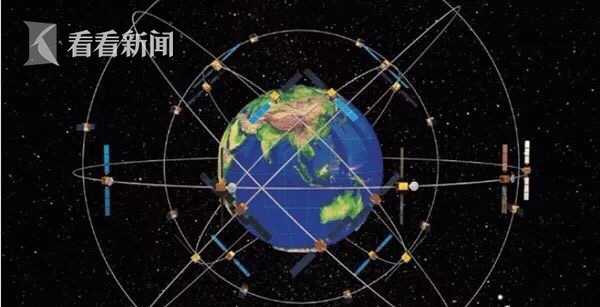
The five functional modules of the operating system are processor management, memory management, device management, file management and operation management. Processor management The most basic function of processor management is to process interrupt events. After configuring the operating system, various events can be processed.
The functions of the computer operating system include: processor management, memory management, device management, file management, job management and other functional modules. Processor management. The most basic function of processor management is to handle interrupt events. The processor can only detect interrupt events and generate interrupts and cannot process them.
Storage management is divided into several functions: storage allocation, storage sharing, storage protection, and storage expansion.Equipment management has the following functions: equipment allocation, equipment transmission control, and equipment independence. File management: file storage space management, directory management, file operation management, file protection.
The operating system should usually include the following five functional modules: (1) Processor management. When multiple programs are running at the same time, solve the problem of processor (cpu) time allocation. ( 2) Operation management. The program to complete an independent task and its required data constitute a task.
The function of the operating system is mainly reflected in the management of computer resources - microprocessors, memory, external devices, files and tasks. The operating system sets this management function into the corresponding program management module, and each management module is responsible for a certain function.That is, the five functions of the operating system.
The operating system has five functions: processor management: mainly controls and manages the work of the CPU. Storage management: mainly carry out memory allocation and management device management: mainly manage basic input and output device file management: responsible for the organization, storage, operation and protection of computer files, etc.

There are the following types of management systems: the management system of the finished product set. This kind of system is a stereotyped management system, which makes a small number of functional adjustments to the software through the parameter settings of the software.
Transaction Processing System (TPS): Operators and supervisors are used to input transactions, events, sort, list, merge updates, output detailed reports, lists and summaries, etc. Management Information System (MIS): Middle managers are used to input general transaction data and simple models to process routine reports.
Adgecal management system Academic management system is one of the most core management systems of the school, which is responsible for arranging and managing the school's teaching activities. It includes curriculum setting, teaching plan, teacher arrangement, examination management and other contents.
VMware vSphere: It is a virtualization management platform that can be used to manage virtual machines, storage and networks, etc. Nagios: It is an open source network monitoring system that can be used to monitor network devices, servers and applications, etc.
Financial subsystem: providing the function of financial management information; Decision support subsystem: make the logistics information system reach a higher level.
ERP management system brand Youyou, Jindie International Software, Wave Software, Dingjie Software, Zhenghang Software. Use friends.
1. System management refers to the information technology system that manages enterprises, and file management is one of the five major functions of the operating system.First, network management refers to the centralized management of resources on the network by network administrators through network management programs.
2. System Management regards organizational components as interrelated and interdependent systems, so it advocates applying the system concept to the management concept.
3. System management refers to the process of maintaining, managing and monitoring computer systems. As an important part of enterprise informatization construction, the importance of computer system management cannot be ignored.
UEFA European championship-APP, download it now, new users will receive a novice gift pack.
The five functional modules of the operating system are processor management, memory management, device management, file management and operation management. Processor management The most basic function of processor management is to process interrupt events. After configuring the operating system, various events can be processed.
The functions of the computer operating system include: processor management, memory management, device management, file management, job management and other functional modules. Processor management. The most basic function of processor management is to handle interrupt events. The processor can only detect interrupt events and generate interrupts and cannot process them.
Storage management is divided into several functions: storage allocation, storage sharing, storage protection, and storage expansion.Equipment management has the following functions: equipment allocation, equipment transmission control, and equipment independence. File management: file storage space management, directory management, file operation management, file protection.
The operating system should usually include the following five functional modules: (1) Processor management. When multiple programs are running at the same time, solve the problem of processor (cpu) time allocation. ( 2) Operation management. The program to complete an independent task and its required data constitute a task.
The function of the operating system is mainly reflected in the management of computer resources - microprocessors, memory, external devices, files and tasks. The operating system sets this management function into the corresponding program management module, and each management module is responsible for a certain function.That is, the five functions of the operating system.
The operating system has five functions: processor management: mainly controls and manages the work of the CPU. Storage management: mainly carry out memory allocation and management device management: mainly manage basic input and output device file management: responsible for the organization, storage, operation and protection of computer files, etc.

There are the following types of management systems: the management system of the finished product set. This kind of system is a stereotyped management system, which makes a small number of functional adjustments to the software through the parameter settings of the software.
Transaction Processing System (TPS): Operators and supervisors are used to input transactions, events, sort, list, merge updates, output detailed reports, lists and summaries, etc. Management Information System (MIS): Middle managers are used to input general transaction data and simple models to process routine reports.
Adgecal management system Academic management system is one of the most core management systems of the school, which is responsible for arranging and managing the school's teaching activities. It includes curriculum setting, teaching plan, teacher arrangement, examination management and other contents.
VMware vSphere: It is a virtualization management platform that can be used to manage virtual machines, storage and networks, etc. Nagios: It is an open source network monitoring system that can be used to monitor network devices, servers and applications, etc.
Financial subsystem: providing the function of financial management information; Decision support subsystem: make the logistics information system reach a higher level.
ERP management system brand Youyou, Jindie International Software, Wave Software, Dingjie Software, Zhenghang Software. Use friends.
1. System management refers to the information technology system that manages enterprises, and file management is one of the five major functions of the operating system.First, network management refers to the centralized management of resources on the network by network administrators through network management programs.
2. System Management regards organizational components as interrelated and interdependent systems, so it advocates applying the system concept to the management concept.
3. System management refers to the process of maintaining, managing and monitoring computer systems. As an important part of enterprise informatization construction, the importance of computer system management cannot be ignored.
Hearthstone arena class win rates reddit
author: 2025-01-05 14:33Hearthstone Arena class tier list 2024
author: 2025-01-05 13:29UEFA Champions League live streaming app
author: 2025-01-05 14:23 Casino redeem
Casino redeem
978.44MB
Check Hearthstone Arena win rate
Hearthstone Arena win rate
614.31MB
Check Hearthstone Arena win rate
Hearthstone Arena win rate
974.98MB
Check 100 free bonus casino no deposit GCash
100 free bonus casino no deposit GCash
397.98MB
Check Hearthstone Wild Decks
Hearthstone Wild Decks
824.42MB
Check UEFA Champions League live streaming app
UEFA Champions League live streaming app
186.46MB
Check Champions League
Champions League
945.86MB
Check Hearthstone Arena class tier list 2024
Hearthstone Arena class tier list 2024
678.13MB
Check TNT Sports
TNT Sports
176.67MB
Check Arena Plus login
Arena Plus login
389.17MB
Check Hearthstone Wild Decks
Hearthstone Wild Decks
846.17MB
Check TNT Sports
TNT Sports
149.25MB
Check 100 free bonus casino no deposit GCash
100 free bonus casino no deposit GCash
421.49MB
Check UEFA Champions League
UEFA Champions League
987.32MB
Check Hearthstone Wild Decks
Hearthstone Wild Decks
186.68MB
Check Hearthstone arena deck Builder
Hearthstone arena deck Builder
477.56MB
Check DigiPlus Philippine
DigiPlus Philippine
461.23MB
Check Casino Plus GCash login
Casino Plus GCash login
486.81MB
Check UEFA Champions League live streaming free
UEFA Champions League live streaming free
377.28MB
Check Arena Plus login
Arena Plus login
556.38MB
Check Walletinvestor digi plus
Walletinvestor digi plus
873.62MB
Check DigiPlus stock
DigiPlus stock
114.91MB
Check Walletinvestor digi plus
Walletinvestor digi plus
913.42MB
Check App to watch Champions League live free
App to watch Champions League live free
249.46MB
Check Hearthstone arena class win rates reddit
Hearthstone arena class win rates reddit
474.79MB
Check App to watch Champions League live free
App to watch Champions League live free
474.54MB
Check UEFA Champions League standings
UEFA Champions League standings
916.56MB
Check Hearthstone Arena class tier list 2024
Hearthstone Arena class tier list 2024
694.12MB
Check UEFA Champions League live streaming free
UEFA Champions League live streaming free
231.68MB
Check UEFA European championship
UEFA European championship
893.62MB
Check UEFA Champions League live streaming app
UEFA Champions League live streaming app
684.51MB
Check Casino Plus GCash login
Casino Plus GCash login
286.29MB
Check UEFA Champions League live
UEFA Champions League live
567.83MB
Check PAGCOR online casino free 100
PAGCOR online casino free 100
664.75MB
Check Hearthstone deck
Hearthstone deck
161.21MB
Check bingo plus update today Philippines
bingo plus update today Philippines
193.23MB
Check
Scan to install
UEFA European championship to discover more
Netizen comments More
2354 Hearthstone Arena win rate
2025-01-05 14:39 recommend
2340 Hearthstone Arena Tier List
2025-01-05 14:38 recommend
1819 Hearthstone Arena class tier list 2024
2025-01-05 14:06 recommend
1186 DigiPlus stock
2025-01-05 13:18 recommend
2693 UEFA Champions League live
2025-01-05 13:07 recommend